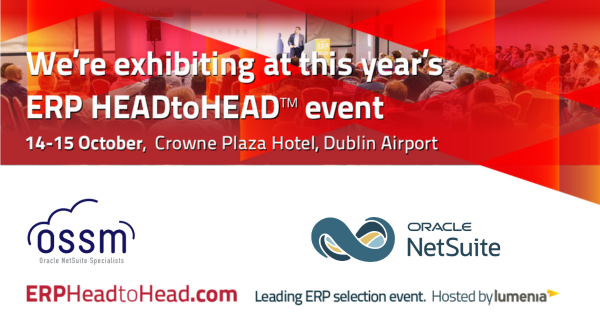
- Manufacturing - Solutions, NetSuite ERP, NetSuite Manufacturing
For many manufacturers, the cracks in an ageing ERP system only become obvious when growth slows down. A platform that once supported operations can quickly become a barrier – making it difficult to keep production running smoothly, track performance across the plant, or move quickly when new opportunities arise. In today’s competitive market, your ERP should drive progress, not stand in the way.
Across the UK, manufacturers are investing in modern manufacturing ERP systems to stay ahead. Rising customer expectations, stricter compliance requirements, and ambitions to expand into new markets all put pressure on outdated processes. If you find yourself fixing the same recurring issues or relying on temporary workarounds, it’s a strong sign your ERP is no longer fit for purpose.
Below, we outline the most common reasons manufacturers struggle to scale with outdated systems – and how modern manufacturing ERP systems can resolve them.
Why old manufacturing software systems cause growing pains
Manufacturers are under constant pressure to cut costs, do more with fewer resources, and react swiftly to shifting market demands, all while maintaining high quality standards. Yet, the biggest obstacles often don’t come from the factory floor, but from the limitations of outdated ERP software. If these challenges sound familiar, it may be time to re-evaluate whether your current technology supports your growth.
A) High maintenance costs
When your team spends more time troubleshooting than innovating, your ERP system is holding you back. Many manufacturers still rely on disconnected applications that require frequent fixes and expensive add-ons to remain operational. Over time, those costs can surpass the price of a modern system – draining money that could be used for R&D, staff development, or strategic projects.
B) Limited functionality
Older systems often struggle to integrate with newer technology. Re-entering the same data into separate systems for finance, inventory, and production increases the risk of mistakes and slows everything down. Limited automation compounds the problem, creating silos that reduce visibility and make it harder to seize opportunities.
C) Security and compliance risks
ERP systems that lack regular updates can leave you exposed to cyber threats and compliance failures. Without robust access controls, audit logs, or real-time traceability, the likelihood of data breaches or failed audits increases significantly. For UK manufacturers operating in regulated industries, the financial and reputational fallout can be severe.
D) Lack of real-time visibility
Relying on outdated reports instead of real-time data makes it difficult to plan accurately or respond quickly to disruptions. Many legacy systems simply cannot provide live insights, leading to forecasting mistakes, missed deadlines, and incomplete orders. Real-time visibility is no longer optional – it’s essential.
E) Difficulty scaling
Expanding into new markets, launching fresh product lines, or opening another site should be exciting milestones. But with legacy ERP systems, even small adjustments; such as adding a new user or managing another currency can require costly, time-consuming development work. If growth regularly causes IT headaches, your ERP is part of the problem.
Recognising these barriers is the first step. The next is investing in modern manufacturing ERP systems designed to help you scale with confidence.
How a modern manufacturing ERP system helps
A unified system like NetSuite Manufacturing brings together production, inventory, supply chain, and financial data in one cloud platform. By replacing disconnected, outdated tools, it provides the visibility and flexibility required to manage complex operations efficiently.
Here are some of the key advantages:
A) End-to-end visibility
Get a real-time view of what’s happening across your business. With accurate data at your fingertips, you can make faster and more informed decisions.
B) Automated workflows
Automation removes repetitive manual tasks, reduces errors, and frees up your team to focus on higher-value work, all while keeping production on schedule.
C) Advanced inventory management
Tools such as demand forecasting, automatic reordering, and live stock tracking help maintain optimal inventory levels and cut waste.
D) Stronger supply chain oversight
Enhanced visibility across the supply chain keeps materials and goods moving efficiently and strengthens collaboration with suppliers.
E) Built-in quality and compliance
Integrated checks throughout production support regulatory requirements and maintain consistent quality standards, reducing costly mistakes.
F) Easy cloud scalability
Add sites, product lines, or users without lengthy IT projects. Cloud ERP makes it easier to scale as your business grows.
G) Seamless integration
NetSuite adapts to your processes and integrates with other business systems, providing a complete solution rather than another standalone tool.
Ready to see the difference?
If your current ERP is holding back growth, upgrading to a modern manufacturing ERP system can transform the way you operate. NetSuite Manufacturing supports the entire process; from order management through to fulfilment, and offers the flexibility to expand without technological roadblocks.
Join the OSSM team at the upcoming Irish ERP HEADtoHEAD™ event to see NetSuite in action. You’ll have the chance to attend live demos focused on production and projects, and speak with experts about how the system could work for your business.
With OSSM’s experience and NetSuite’s powerful manufacturing ERP systems, you can create a smarter, more resilient organisation that’s ready for the future.
Register here.
About the Author

Rob Van Der Velden
Rob Van Der Velden is a Consultant at OSSM, specialising in NetSuite implementation project management. He oversees the entire process from pre-sales to training, with expertise in Manufacturing, Project Management, Service Management, CRM, and Distribution & Warehouse Management. Rob excels in workshops, process definition, data migration, customisation, and change management, providing strategic guidance to optimise business processes.




























